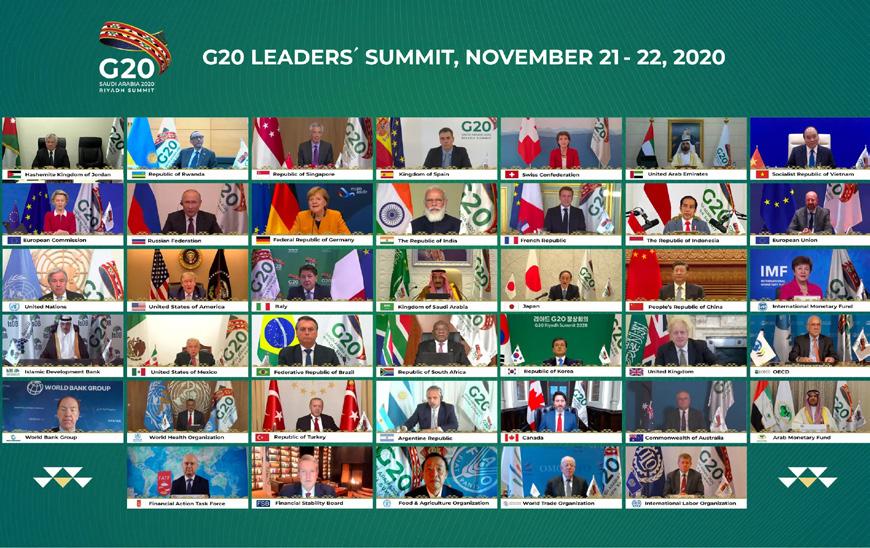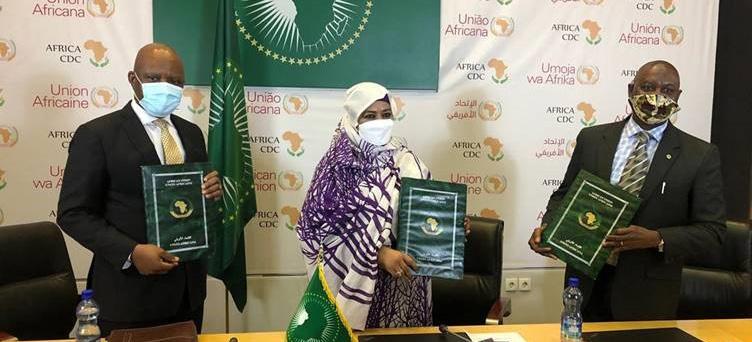
4 minute read
Building A Smart City Covid-19 Vaccine update: IATA
Covid-19 Vaccine update: IATA prepares the world for the largest and most complex global logistics operation in history.
Advertisement
The International Air Transport Association (IATA) released guidance to ensure that the air cargo industry is ready to support the large-scale handling, transport and distribution of a COVID-19 vaccine. IATA’s Guidance for Vaccine and Pharmaceutical Logistics and Distribution provides recommendations for governments and the logistics supply chain in preparation for what will be the largest and most complex global logistics operation ever undertaken. Reflecting the complexity of the challenge, the Guidance was produced with the support of a broad range of partners, including the International Civil Aviation Organization (ICAO) and the International Federation of Freight Forwarders Associations (FIATA). The guidance includes a repository of international standards and guidelines related to the transport of vaccines and will be updated regularly as information is made available to the industry. Accompanying the guidance, IATA established a joint information-sharing forum for stakeholders. "Delivering billions of doses of a vaccine that must be transported and stored in a deep-frozen state to the entire world efficiently will involve hugely complex logistical challenges across the supply chain. While the immediate challenge is the implementation of COVID-19 testing measures to re-open borders without quarantine, we must be prepared for when a vaccine is ready. This guidance material is an important part of those preparations,” said IATA’s Director General and CEO, Alexandre de Juniac. Key challenges addressed in IATA’s Guidance for Vaccine and Pharmaceutical Logistics and Distribution include: • The availability of temperaturecontrolled storage facilities and contingencies when such facilities are not available • Defining roles and responsibilities of parties involved in the distribution of vaccines, particularly government authorities and NGOs, to assist safe, fast and equitable distribution as broadly as possible • Capacity & Connectivity: The global route network has been reduced dramatically from the pre-COVID 22,000 city pairs. Governments need to re-establish air connectivity to ensure adequate capacity is available for vaccine distribution. • Facilities and infrastructure: The first vaccine manufacturer to apply for regulatory approval requires the vaccine to be shipped and stored in a deep-frozen state, making ultra-cold chain facilities across the supply chain essential. Some types of refrigerants are classified as a dangerous goods and volumes are regulated which adds an additional layer of complexity.
Considerations include availability of temperature-controlled facilities and equipment and staff trained to handle
IATA’s Director General and CEO, Alexandre de Juniac
time- and temperature-sensitive vaccines. • Border management: Timely regulatory approvals and storage and clearance by customs and health authorities will be essential. Priorities for border processes include introducing fasttrack procedures for overflight and landing permits for operations carrying the COVID-19 vaccine and potential tariff relief to facilitate the movement of the vaccine. • Security: Vaccines are highly valuable commodities. Arrangements must be in place to ensure that shipments remain secure from tampering and theft.
Processes are in place already, but the huge volume of vaccine shipments will require early planning to ensure that they are scalable.

G20 Saudi Arabia Summit Briefing Book, features high-profile voices on the world's most pressing challenges
The Publication contains contributions from prominent world leaders and international bodies.
G20 Virtual Summit, Hosted by Saudi Arabia
The G20 Virtual summit hosted as Argentinian president Alberto by Saudi Arabia took place on Fernández who talks about the need the 21, 22 November 2020. The for a new international architecture. Summit Briefing book (G20 In addition, Brazil's president Jair Saudi Arabia) was published alongside Bolsonaro calls for cooperation in the virtual event, it features prominent these exceptional times; and Charles voices from government, the business Michel, president of the European world and civil society. The aim of the Council, explores how we can build publication series is to help global back better after COVID-19. stakeholders better understand the challenges we all face in meeting The publication also includes core the demands of the world, today. The agenda issues identified by Saudi pandemic was the main talking point in Arabia in its year as host: empowering this year's edition. people, safeguarding the planet, and shaping new frontiers. Saudi The publication contains exclusive ministers feature prominently, offering interviews from world leaders such thought-leadership on several sectorspecific issues. Tawfig Al Rabiah, minister of health, spotlights how the Saudi presidency is accelerating progress in health care, from R&D to digital solutions, while Mohammed A Al-Jadaan, minister of finance, calls for a results-oriented pandemic response. Minister of commerce Majid bin Abdullah Al Qasabi explores how the Saudi presidency is seeking to reinstall trust in the multilateral trading system, and Ahmed Al-Khateeb, minister of tourism, looks at the impact of COVID19 on tourism – and offers solutions to getting the sector back on its feet.

There are further contributions from Dr Hamad Mohammed Al-Sheikh, minister of education, Abdulrahman AlFadley, minister of environment, water and agriculture, HRH Prince Abdulaziz bin Salman bin Abdulaziz, minister of energy, and Abdullah A Alswaha, minister of communications and information technology.
The prestigious line-up of authors also includes voices from the Arab Monetary Fund, the Islamic Development Bank Group, the World Health Organization, the OECD, the United Nations World Tourism Organization, UN Women, UNESCO, OPEC and INTERPOL. The Riyadh Summit is the latest in an auspicious series of official publications of The Global Governance Project and the G20 Research Group.





